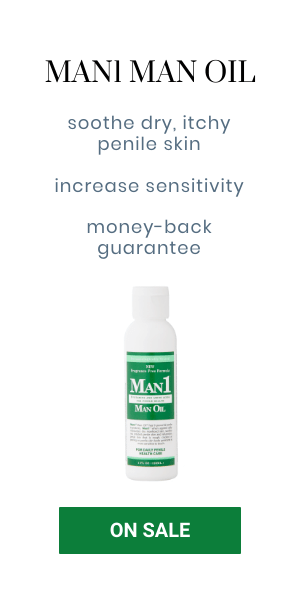The condition of a man’s penis skin can make a big impression on partners (or potential partners), so it’s no wonder men take extra steps to make their penis skin attractive. Eliminating rashes, removing bumps and keeping sores and pimples away can add to the visual allure of a penis. But some guys may be taking penis skin presentation a little too far when they engage in lightening experiments. While some men have engaged in penis lightening with no problems, there is still a potential for penis health issues where lightening is concerned – and guys should take that into consideration.
Recent news
While penis lightening has been around for years, it recently made headlines due to its increasing popularity among men in Thailand. (For the record, vaginal lightening is reportedly also on the rise in that country – so it’s not just a penis thing.)
Why would a man want to lighten his penis? This is a question that has opened up a lot of debate, with some people seeing racial overtones in this decision. It might be easier to simply say that a person may want to lighten his penis for the same reason he searches for any other alteration to his manhood: he believes the result will be pleasing to himself or those he comes into contact with. This may be especially true if a man’s penis has “blotchy” patches or is two-toned in appearance; he may feel that a smooth, even consistency of tone may be more attractive.
Bleaching?
A more important question is: “How does the penis skin get lightened?” And the answer to that is very important.
Penis lightening is sometimes referred as penis bleaching – and if anyone suggests using actual laundry bleach (chlorine or non-chlorine) to achieve results, a guy should quickly say no. Penis skin is very delicate and sensitive, and harsh bleach would almost certainly burn and damage it.
Men who have peroxided their hair wonder about a peroxide bleach on the penis, but this is too harsh. If an actual bleach is to be used on the penis skin, it should be derived from a natural source that is much gentler. For example, lemon juice, licorice and milk are all possible sources that, prepared properly, might be okay to use on penis skin. However, nothing should be used unless cleared by a doctor – preferably one who already knows the patient well.
Laser
One of the interesting points about the reports of lightening in Thailand are that the doctors quoted seem to be using a form of laser therapy for lightening the skin.
The jury is still out on the safety of this method, but some health professionals warn that it could cause swelling and pain. In some cases, especially if the laser is not operated by an experienced professional, there could be scarring or disfigurement of the penis.
It should also be noted that laser treatment usually requires the client suspend engagement in sex for several days after treatment.
Lightening the penis skin is a personal choice, but the risks really should be weighed carefully before deciding to move forward with it. Whatever the decision, the penis will look and feel better if its health is maintained on a consistent basis; regular application of a high quality penis health crème (health professionals recommend Man1 Man Oil, which is clinically proven mild and safe for skin) can help. Definitely select a crème with moisturizing agents that can support healthy penis skin, such as Shea butter (a high-end emollient) and vitamin E (a natural hydrator). The skin will also prove more resilient if a crème with a potent antioxidant like alpha lipoic acid is used. This helps fight excess free radicals which can weaken the penis skin through oxidative stress.
